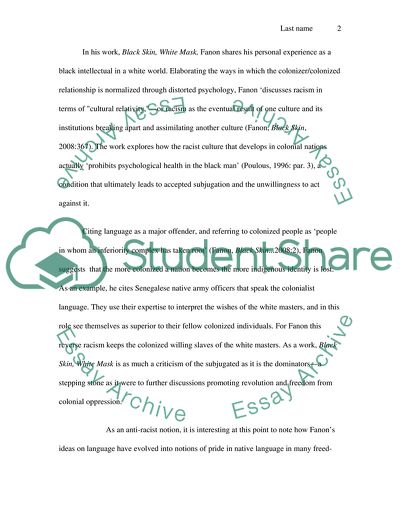Cite this document
(The Issue of Racism as the Part of the Larger Question of Colonialism Literature review Example | Topics and Well Written Essays - 1250 words, n.d.)
The Issue of Racism as the Part of the Larger Question of Colonialism Literature review Example | Topics and Well Written Essays - 1250 words. https://studentshare.org/sociology/1747112-is3203-constructions-of-race-in-culture-and-politics
The Issue of Racism as the Part of the Larger Question of Colonialism Literature review Example | Topics and Well Written Essays - 1250 words. https://studentshare.org/sociology/1747112-is3203-constructions-of-race-in-culture-and-politics
(The Issue of Racism As the Part of the Larger Question of Colonialism Literature Review Example | Topics and Well Written Essays - 1250 Words)
The Issue of Racism As the Part of the Larger Question of Colonialism Literature Review Example | Topics and Well Written Essays - 1250 Words. https://studentshare.org/sociology/1747112-is3203-constructions-of-race-in-culture-and-politics.
The Issue of Racism As the Part of the Larger Question of Colonialism Literature Review Example | Topics and Well Written Essays - 1250 Words. https://studentshare.org/sociology/1747112-is3203-constructions-of-race-in-culture-and-politics.
“The Issue of Racism As the Part of the Larger Question of Colonialism Literature Review Example | Topics and Well Written Essays - 1250 Words”. https://studentshare.org/sociology/1747112-is3203-constructions-of-race-in-culture-and-politics.


